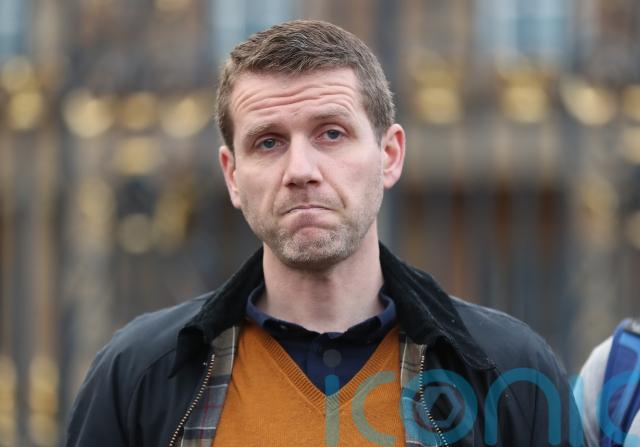
Belfast City Council has passed a new policy over the usage of the Irish language, despite opposition by unionists.
The policy aims to remove barriers to the use of the Irish language in public life, promote the learning of Irish, support the promotion of Irish through its facilities, programmes and events and take resolute action to promote and protect the Irish language across its own public-facing services.
It also includes a pledge for the council to adopt a dual-language approach to signage at all its facilities.
The policy comes with a two-year implementation plan and is expected to see a new identity and logo designed.
Some £1.9 million of funding was previously agreed to implement the policy.
⭕️Belfast City Council has passed an Irish language policy that will deliver equality for the language
Is forbairt stairiúil é seo do Ghaeilgeoirí na cathrach
Sinn Féin will continue to support our thriving Irish language community, & work to build a welcoming & inclusive city pic.twitter.com/GRfJrqVkQA
— Sinn Féin (@sinnfeinireland) October 1, 2025
Meanwhile, the erection of street signs of Irish will continue to be handled via the council’s existing Dual Language Street Signs Policy.
A motion to exempt staff uniforms from the policy was defeated by 42 votes to 17.
The policy was passed with the support of Sinn Fein, the SDLP, Alliance, People Before Profit and the Green Party – while the DUP, UUP and TUV voted against it.
Unionist councillors are expected to submit a call-in on Thursday morning, a mechanism where a decision of the council is reviewed due to concerns around its implications or how it was made.
Sinn Fein councillor Tomas O’Neill described an “historic moment” for the council, and “putting Beal Feirste back into the city, not just in our logo”.
He described “one of the most progressive Irish language policies that we’ve seen on this island”.
“Thousands of people attend Irish language classes on a weekly basis and there are an estimated 50,000 across the city with varying degrees of Irish,” he said.
“The Irish language community here is thriving, it’s at the heart of our communities right across Belfast and we should be doing all we can to support that growth.”
His party colleague councillor Rois-Maire Donnelly said the policy will have an “unbelievable impact” and will “shine a positive light on the city on the world stage”.
However DUP councillor Sarah Bunting questioned a lack of clarity around what the policy will mean and how much it will cost.
She said some council staff are alarmed at the prospect of having Irish language words on their uniform and apologised to them for the lack of clarity.
“The ordinary folk of this city just want one thing, value for money on the rates they pay,” she said.
“Instead this council is spending money like it’s going out of fashion on a fantasy project with little return while crying poverty because we can’t afford the basics that the city needs and deserves.”
Ms Bunting also queried the cost of the policy, and claimed there were “no clear figures, no transparency, no honesty”, and queried whether the council “would rather bankroll a culture war than deliver basic services”.
Alliance councillor Michael Long said his party is backing the policy because it is “right” and described “something that is positive”.
“We are supporting minority languages rights for an indigenous language,” he said.
“It’s the same as what happens in other parts of the United Kingdom, whether that’s Wales or Scotland or Cornwall, and I believe that it’s important that we celebrate the diversity within our community.”
He also said the policy is a framework, and will cut what he described as the “continual bickering” he said the council saw at every monthly meeting around the Irish language.
TUV councillor Ron McDowell said the policy will be “resisted to the utmost”, and suggested there may be a legal challenge to it.

Outside the meeting, Ciaran Mac Giolla Bhein, president of Conradh na Gaeilge welcomed the passing of the policy.
“The Irish language is flourishing across our city,” he said.
“We have been working with Irish language groups and speakers, Belfast City Council and councillors for almost a decade on this policy.
“We have helped design this policy based on the fundamental principles of parity of esteem enshrined in the Good Friday Agreement to take ‘resolute action’ to develop and support the Irish language.
“We used guidance from the United Nations, the Council of Europe, the Equality Commission, our own Humans Rights Commission and Foras na Gaeilge.
“The product of that long process is a progressive, minority rights compliant Irish language policy.”
Subscribe or register today to discover more from DonegalLive.ie
Buy the e-paper of the Donegal Democrat, Donegal People's Press, Donegal Post and Inish Times here for instant access to Donegal's premier news titles.
Keep up with the latest news from Donegal with our daily newsletter featuring the most important stories of the day delivered to your inbox every evening at 5pm.